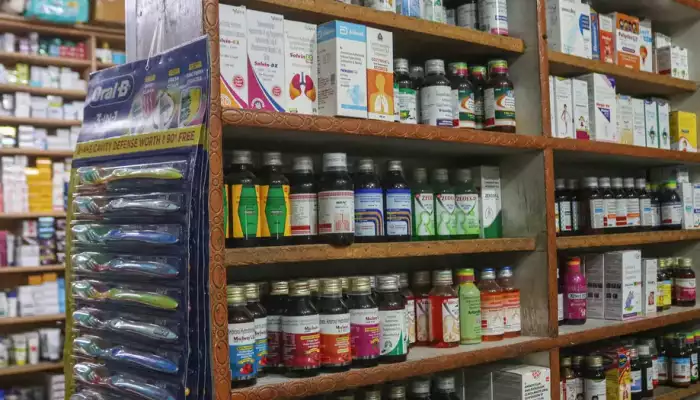
Three Indian states have banned a cough syrup after at least nine children died allegedly after consuming it, authorities said.
The Indian Health Ministry said in a statement that tests samples of Coldrif cough syrup, made by Sresan Pharma in Tamil Nadu, contained diethylene glycol (DEG).
DEG is an industrial solvent and is highly toxic if ingested even in small amounts.
"The samples are found to contain DEG beyond the permissible limit," the ministry statement said.
"The sale of this syrup has been banned throughout Madhya Pradesh," said Mohan Yadav, the chief minister of the central Indian state, where most of the deaths occurred.
Yadav added that the sale of other products of Sresan Pharma is also being banned.
Tamil Nadu and Kerala have also banned sales, according to local media.
Meanwhile, according to The Hindu the southern state of Telangana issued a public alert regarding Coldrif cough syrup.
India's pharmaceutical industry under scrutiny
The incident has renewed scrutiny of India's pharmaceutical industry.
In 2022, the World Health Organization (WHO) linked cough syrups made by another Indian company to the deaths of 70 children in The Gambia.
New Delhi had disputed the WHO findings.
A year later, the WHO again warned against two cough medicines made in India after Uzbekistan linked the syrup to the deaths of at least 18 children.
A fifth global warning against India-made medication in a 10-month span was issued after medicines contaminated with toxins were found in Iraq.
India's robust generic drug industry
India provides 20% of the world's supply of generic medicines, according to a Press Information Bureau (PIB) statement in May.
These are cheaper versions of drugs produced once patents expire.
Its pharmaceutical industry ranks third in the world by volume, the Indian government agency added.
In 2011, a study published by the Indian Journal of Pharmacology found that while generic drugs were five to six times cheaper than their branded equivalents, there was no significant difference in quality.